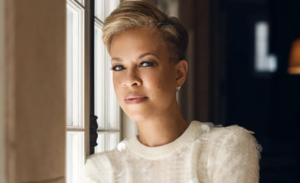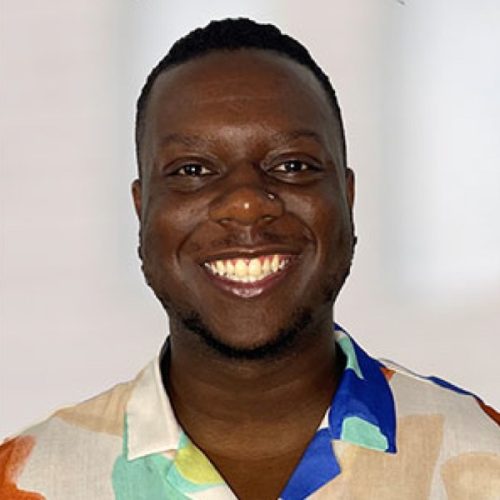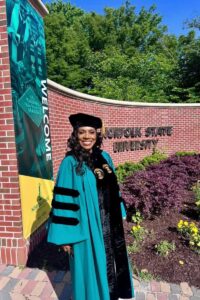Originally published on the Black Wall Street Times
The 2022 documentary film AFTERSHOCK chronicles the deaths of two women due to childbirth complications and their families’ journey to seek justice through legislation and medical accountability.
On March 24th and 25th, leading healthcare providers, public officials, and community advocates from around the U.S. attended The 2nd Annual Black Birth Symposium in Milwaukee, Wisconsin.
Milwaukee Film presented The Black Birth Symposium featuring all-day short film presentations, keynote presentations and conversations, along with breakout sessions for healthcare professionals, public officials, and community advocates.
Aftershock continues to make waves
Co-directed by Paula Eiselt and Tonya Lewis Lee, wife of legendary filmmaker Spike Lee, AFTERSHOCK was screened during the Black Birth Symposium and reckoned with one of the most pressing American crises today: maternal health.
The Black Wall Street Times spoke with Tonya about the art of storytelling, culture stigma’s, Black maternal health and what inspires her moving forward.
Ezekiel Walker: I’m curious what brought you to this story, what compelled you to be a part of it?
Tonya Lewis Lee: Well, way back in 2007 I became a spokesperson for the Infant Mortality Awareness Raising Campaign: A Healthy Baby Begins With You out of the US Department of Health and Human Services Office of Minority Health. I had the opportunity to travel the United States and meet with all kinds of people and learn about the issues of interest, mortality and ultimately, women’s health because when it comes down to infant health, it’s really about women’s health. I’ve been thinking about making a film about it, because to your point, I felt like we needed to raise awareness, so that we could come up with solutions and I think the solutions are there.
Ezekiel Walker: Family doulas and birthing centers on the rise as pregnant Black mother’s and women of color search for alternatives to traditional hospital birthing, the city of Philadelphia just agreed to pay $1,000 per month to qualifying pregnant women, do you see reforms coming for more women seeking non-traditional births?
Tonya Lewis Lee: I think what you’re talking about and what I’ve been saying a lot is that we need a cultural shift in how we think and approach birthing in America. One of the things that became very apparent as we were making the film is that the United States is the only industrialized nation that does not have Midwifery, as part of women’s health care. Midwives have been vilified intentionally. It has destroyed the practice. It’s just so ingrained in people’s minds that pregnant women are almost sick and so therefore, that’s why we have to go to a hospital and be at the hands of surgeons. I mean, obstetricians are surgeons. I think we often forget about the chance to have midwives and birthing center births or potentially home births for the right people. Home births don’t have to be a scary thing if the right support is around, so I agree with you completely. We need to rethink how we talk about birthing in this country.
Ezekiel Walker: I’m curious were there any preconceived notions or thoughts that you may have had previously before embarking on the project?
Tonya Lewis Lee: One of the surprises to me was thinking from the men’s perspective. I hadn’t really thought about fathers left behind to raise the children until I met these fathers who were the ones that are left here to raise children after their partner passed away. It makes you realize maternal health is not solely a woman’s issue, it is all of our issue. It’s a community issue.
Ezekiel Walker: Do you think the popularity of traditional hospital births, despite their controversy, speaks to the corporatization of America?
Tonya Lewis Lee: I think it’s the fact that midwives were a woman’s workforce. Women were making money, women were powerful in their communities and when modern medicine came in the system of medicine decided they wanted to take that economy. They didn’t want to work with the midwives. They wanted to take what these women were doing and own it themselves and force everybody to come to the doctors, you know, midwives go to the women but they wanted to force everyone to come to the doctors and be at the convenience of the doctors and we all pay the doctors and the doctors become important people. That’s how I see it. They just took the power. They took the powerful women and we’re all suffering for it today.
Ezekiel Walker: As a storyteller yourself, what was it like to tell a story with so many opinions about women’s health in the news?
Tonya Lewis Lee: There’s a story that we follow in the film of a woman who does give birth – spoiler alert – at a birthing center and has a beautiful birth. Originally when we meet her in the film, she was planning to give birth at a hospital with a doctor, “the regular way” as she put it, and then decided not to. She was in Tulsa, Oklahoma, and then she decided to see what other options were available to her and she found an amazing birthing center there in Tulsa and had a beautiful birth. It was really important to us to be able to show what’s possible and what a natural full on non-medicated birth without intervention really looks like.
Ezekiel Walker: People are so divided, but I think storytelling has a way for some of dissolving right and left or red and blue. Do you see the same thing when it comes to storytelling?
Tonya Lewis Lee: Storytelling is so important. I think it’s key because that’s how we learn about each other. When you tell a story from your perspective, it unites us as human beings, we can see the commonalities and the things that we’re all fighting for, together as humanity. So I think storytelling is really key because it tells us who we are as human beings. It can help direct us in a way and it can it can inspire empathy.
Ezekiel Walker: I’m curious what gives you optimism for Black birth going forward?
Tonya Lewis Lee: Well, again, I have to say I am optimistic because of people like Shani, Ben Gibson, Amari Menard, and Bruce McIntyre, who we feature in the film who did go through a tragic loss, but got up and are really fighting to bring change to birthing in America. I’m inspired by the many people that I have met and continue to meet on my journey who are doing the work every day on the frontlines, day in and day out people you don’t see. I think that’s why Black women, when we come out to vote, we show up because we know that it matters. So I remain optimistic because I see what people are doing out there but it does get hard sometimes, especially right now when people are so divided. But I’m an optimistic person by nature, and I’m going to remain optimistic and keep doing my part because I think we all have a part to play. You just got to figure out what your part is.
AFTERSHOCK is available on Hulu now.
This interview was edited for brevity.
 Tonya Lewis Lee, Director.
Tonya Lewis Lee, Director.





